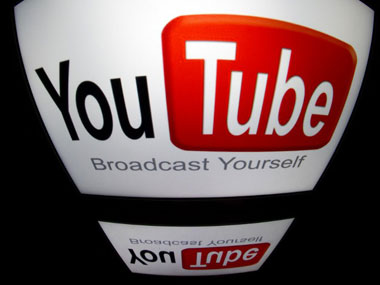YouTube could see a lot of changes in the next coming days and these are unlikely to leave fans and artists happy. According to a report by
Financial Times, the Google-owned video service is planning to block several independent record labels who’ve refused to sign up to the licensing terms of the company’s new subscription service. Essentially the decision could affect independent label artists like Adele, Arctic Monkeys, Radiohead to name a few. (Subscription service content only on FT) The report quotes Robert Kyncl, YouTube’s head of content and business operations, as saying that record labels that account for 95 percent of the music industry have signed up to the new terms, and that only the remaining 10 percent, who’ve asked European regulators to check if Google is taking advantage of its position, will been blocked from using the platform. The report add that with the new paid service, YouTube will allow users paying a monthly fee to watch videos or listen to music without any advertisements even when not connected to the Internet. This premium YouTube service is likely to launch at the end of the summer. The new premium feature set will also allow users to listen to an artist’s entire album and not just a particular song like the current service. The Financial Times report had raised questions on how the new terms of YouTube’s subscription rules would affect independent artists who have not agreed to the paid subscription service. Now, according to
Digital Music News YouTube is not going to block these videos and that the FT report might have been wrong. The report in the website, quotes an anonymous source as saying, YouTube will not block the videos that don’t sign on with the subscription service but rather, it will be blocking music videos from YouTube’s monetization program, as whole, if labels can’t agree to make their videos available to both the free and premium tiers of the subscription service. [caption id=“attachment_1228917” align=“alignleft” width=“380”] Youtube logo is seen in this file photo. AFP[/caption] The report adds, “This source explained that the ‘account’ they refer (YouTube) refers to is the CMS account you get from YouTube when you become an approved partner of their video monetization program and the account partners use to manage content ID claims.” According to the report, “monetisation will be shut down from videos that contain music that has not been submitted to YouTube’s music streaming service.” But the FT report has caused quite a stir. Rolling Stone quotes Alison Wenham, chief executive of the Worldwide Independent Network, as calling YouTube’s tactics are nothing but ‘bullying’. The Worldwide Independent Network and IMPALA (Independent Music Companies Association) had come out and condemned the YouTube decision. IMPALA is currently fighting the legal battle against YouTube with EU regulators. In a statement, the two associations said the “decision to launch a streaming service without independent label support was a grave error of commercial judgement.” The statement adds, “the Worldwide Independent Network (WIN), the organisation that represents the interests of the global independent music community, has issued a new statement further questioning the actions of YouTube as the Google owned company presses ahead with plans to block and ‘cull’ the content of independent labels that do not sign up to a new music streaming agreement.” IMPALA has also said that, “YouTube continues to issue content blocking threats to independent labels who refuse to sign what many labels are calling highly unfavourable, and non-negotiable terms, which undervalue existing rates in the marketplace from partners such as Spotify and Deezer.” While DigitalMusicNews’ source might say something else on the blocking content part of the story, clearly the associations are having a tough time dealing with YouTube. Music streaming is becoming a fierce battle ground and with the new service, it is now ready to take on competitors like Spotify, Beats Music and others. Moreover, Google is also looking to stay ahead in the game considering its arch-rival Apple now owns
**Beats Music** , while Amazon has also recently launched the
**Prime streaming service** .
YouTube could see a lot of changes in the next coming days and these are unlikely to leave fans and artists happy.
Advertisement
End of Article


)
)
)
)
)
)
)
)
)



